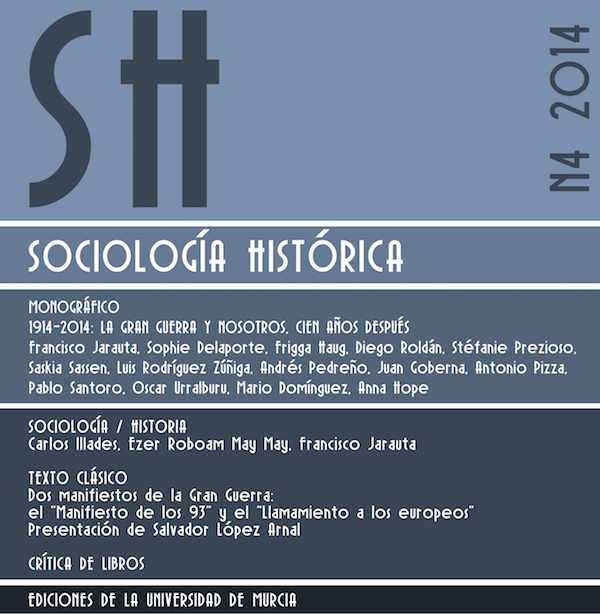French and Italian socialism and labor movements facing World War I: What to do when the war breaks out?
Abstract
“Let's face it as a fact,” Hollande stressed at the launch of the centenary celebrations in November 2013 “when the general mobilization was declared, there was only one country, one nation, one army.” At a time when official commemorations of the First World War are in full swing, it is more than ever impossible to abstract from the dialectical relationship that develops between "public and political uses of history" and building of scholar history. Today, the working class, the defeated, are apparently invoked to essentially emphasize their "support" to "their" nation at war. Working worlds and labour movements, in all their social and political complexity, fade away from historical research, as have almost disappeared issues related to socio-political power relations.
This contribution will revert to one of the historiographical cruxes on socialisms at war, that is the issue of their "entry" into the conflict. It is about understanding how "war breaks" in international socialism’s debates, considering the various positions relative to the "choice" of the intervention, including the question of the "shift" of a war-hostile social democracy that still goes to war however, sometimes using a nationalist or patriotic rhetoric. To do this, two case studies were selected, starting from two different socio-political realities, which, each in their own way, offer a range of ways in which social democracy has had to position itself in front of the war. On one hand, the Italian "exception", on the other, the French patriotic "turnaround". In focus: to understand if and how the war is a turning point, a break in the history of the societies, and what are its limits.
Downloads
-
Abstract2600
-
PDF (Español (España))488
-
PDF (Français )488
Las obras que se publican en esta revista están sujetas a los siguientes términos:
1. El Servicio de Publicaciones de la Universidad de Murcia (la editorial) conserva los derechos patrimoniales (copyright) de las obras publicadas, y favorece y permite la reutilización de las mismas bajo la licencia de uso indicada en el punto 2.
2. Las obras se publican en la edición electrónica de la revista bajo una licencia Creative Commons Reconocimiento-NoComercial-SinObraDerivada 4.0 España (texto legal). Se pueden copiar, usar, difundir, transmitir y exponer públicamente, siempre que: i) se cite la autoría y la fuente original de su publicación (revista, editorial y URL de la obra); ii) no se usen para fines comerciales; iii) se mencione la existencia y especificaciones de esta licencia de uso.
3. Condiciones de auto-archivo. Se permite y se anima a los autores a difundir electrónicamente las versiones pre-print (versión antes de ser evaluada) y/o post-print (versión evaluada y aceptada para su publicación) de sus obras antes de su publicación, ya que favorece su circulación y difusión más temprana y con ello un posible aumento en su citación y alcance entre la comunidad académica. Color RoMEO: verde.










